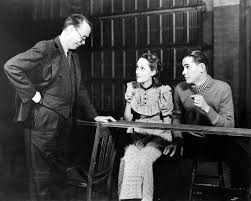
Word of the Day: Nurture
Today’s word of the day, courtesy of the Mirriam-Webster Dictionary website, is nurture, which means “1. to supply with nourishment; 2. to educate; and 3. to further the development of; to foster” (https://www.merriam-webster.com/word-of-the-day). The dictionary then gives its version of the etymology: “It’s no coincidence that nurture is a synonym of nourish—both are derived from the Latin verb nutrire, meaning ‘to suckle’ or ‘to nourish.’ The noun nurture first appeared in English in the 14th century, but the verb didn’t arrive until the 15th century. Originally, the verb nurture meant ‘to feed or nourish.’ The sense meaning ‘to further the development of’ didn’t come into being until the end of the 18th century. Mary Wollstonecraft, mother of Frankenstein author Mary Shelley, is credited with first giving life to that sense in her Vindication of the Rights of Woman (1792): ‘Public spirit must be nurtured by private virtue,’ she wrote. Other nutrire descendants in English include nutrient, nutritious, nutriment, nutrition, and, of course, nourishment.”
According to www.etymonline.com, the noun nurture entered the language as a noun around “1300, norture, ‘upbringing, the act or responsibility of rearing a child,’ also ‘breeding, manners, courtesy,’ from Old French norture, nourreture ‘food, nourishment; education, training,’ from Late Latin nutritia ‘a nursing, suckling,’ from Latin nutrire ‘to nourish, suckle’ (see nourish). From mid-14c. as ‘nourishment, food.’” As a verb, it appears around “1400, norturen, ‘to bring up, rear’ (a child).”
On this date in 1938, in Princeton, New Jersey, at the McCarter Theater, a play premiered called Our Town, written by Thornton Wilder. Three days later it opened in Boston, Massachusetts at the Wilbur Theater, and on February 4 it opened in New York at Henry Miller’s Theater (now the Stephen Sondheim Theater) on Broadway. It later moved to the Morosco Theater (closed and demolished in 1982) where it ran until mid-November of 1938.
Wilder won the Pulitzer Prize for Drama in 1938 for Our Town. A revival of the play in 1988 and 1989 at the Lincoln Center won both the Drama Desk Award and the Tony Award for Best Revival for 1989. In May of 1939, The Campbell Theater produced a radio production starring Orson Welles as the Stage Manager.
The play is metatheatrical, meaning that it is a play that admits it is a play. In fact, it takes place in whatever theater it is produced in, although the year is always 1938, the year in which it was written. The principle character of the play is the Stage Manager, who functions as both a narrator and as several of the characters in the play-within-the-play. The play acknowledges the presence of the audience and the presence of the theater.
The story takes place in the small town of Grover’s Corners, New Hampshire (although the coordinates given by the Stage Manager actually places the town in Massachusetts. Each of the three acts of the play is labeled: Daily Life; Love and Marriage; Death and Eternity. The main characters are George Gibbs and Emily Webb, whom we meet in Act 1 when they are still in school. We also meet their families and learn about life in Grover’s Corners in 1901.
In Act 2, it’s 1904, and George and Emily are getting married. We’re treated to a brief scene in 1903, a flashback, where the two young people realize that they are in love and tell each other. But the big day features stress, cold feet, and eventual joy.
Act 3 takes place in 1913. At the beginning of the act, we’re introduced, by the Stage Manager, to the graveyard and some of the people who have died in the nine years since Act 2. One of those is Emily’s brother, Wally, who suffered a burst appendix. And then we learn that Emily has died in childbirth. In the rest of the act, she talks to the others who have died and are buried in the graveyard, and she is given the opportunity to return for one day of her life. She chooses, against the warnings of the others in the graveyard, her 12th birthday. But the memory is painful, and she returns to her grave. The play concludes with George weeping over Emily’s grave and the Stage Manager wishing the audience a good night.
The play is a lovely bit of American nostalgia. It’s also a classic of the American theater. In my first decade at Southern Wesleyan University, I directed two shows each year. Before I arrived, and since I stopped directing, the school has done just a Spring Musical, but students asked me about doing a non-musical play since not everyone sings. I decided to use the plays to be educational as well as entertaining. We did The Importance of Being Earnest, Romeo and Juliet, As You Like It, and Our Town, among others. I think Our Town may have been my favorite among them. The young woman who played Emily was unforgettable.
Why should we remember a play like Our Town? Why not do something new, or something comic, or another popular musical? I think that it is because there is something to learned from old plays, from classics. There is also something to be learned from looking back at our past, whether it is the distant past or the recent past. I chose plays like Our Town because they nurture the human spirit in the audience. If you ever get a chance to see it, go.
The picture is of “Frank Craven, Martha Scott and John Craven in the original Broadway production of Our Town (1938)” (https://en.wikipedia.org/wiki/Our_Town#/media/File:Craven-Scott-Craven-Our-Town.jpg).
I was out of town for a few days, taking my daughter to her internship in Denver and helping her get her apartment set up. Hope you didn’t miss the Word of the Day too much.